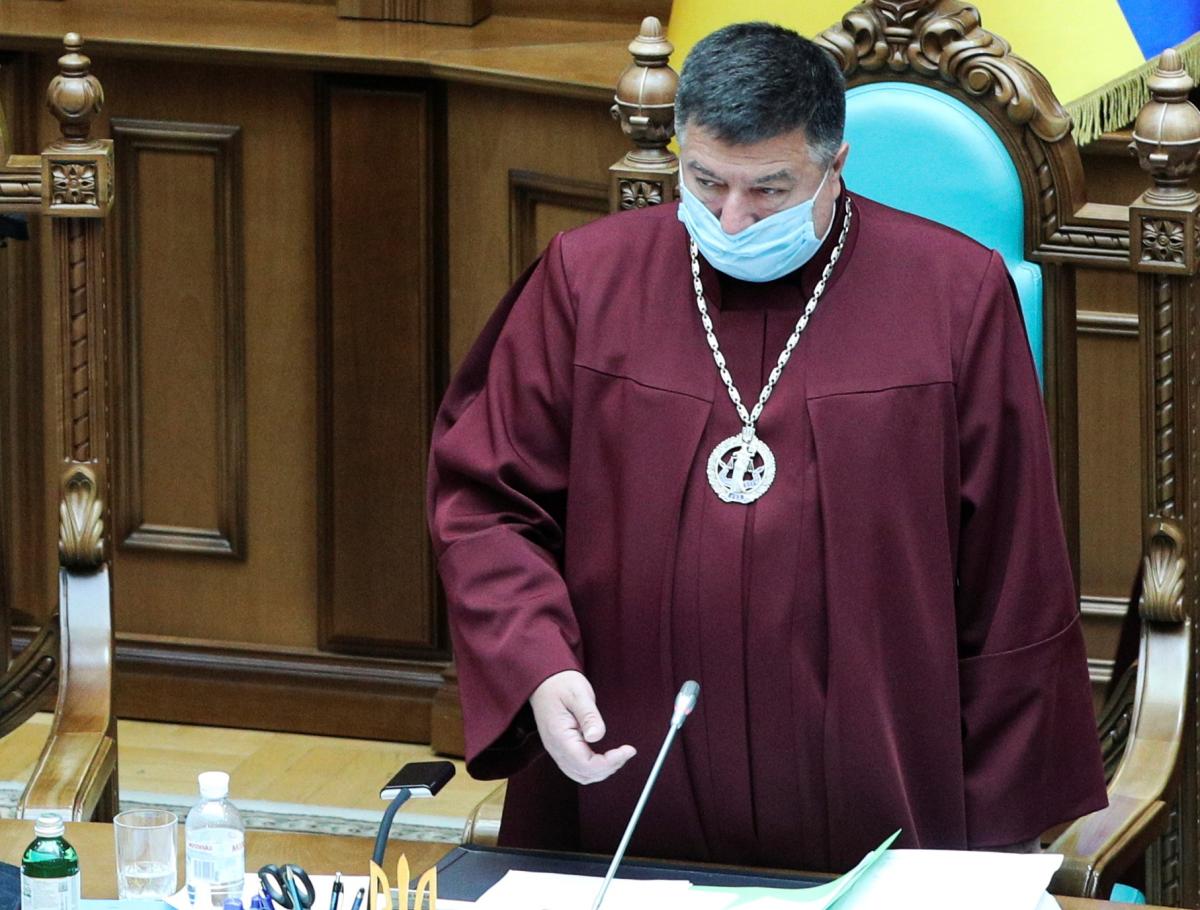
The Constitutional Court has branded "illegitimate" a presidential decree suspending CCU chairman, Oleksandr Tupytsky.
That's according to a commentary released by the CCU Secretariat's Legal Department.
"The decree, issued by President of Ukraine, is not based on the Constitution of Ukraine, and does not correspond to it. The powers of President of Ukraine are determined exclusively by the Basic Law of Ukraine," the commentary says.
Read alsoZelensky: In 2021, Ukraine to launch major judicial reformAt the same time, it is noted that the Constitution does not endow the President with the right to "suspend a judge of the Constitutional Court of Ukraine." Moreover, the Constitution has laid down no possibility for suspending a CCU judge whatsoever, the Constitutional Court stressed.
The president "went beyond constitutional powers" in his move to suspend the CCU chair, the commentary notes.
The court believes that entitling one of the actors allowed to appoint CCU judges (in this case, the president) to "suspend a CCU judge" while the other two appointment actors (the Verkhovna Rada and the Congress of Judges) have no such right would mean a gross violation of the constitutional and legal status applied to all CCU judges. At the same time, it is this approach that was used when Presidential Decree No. 607/2020 of December 29, 2020, was issued, according to which six CCU judges may be subject to such a measure of ensuring criminal proceedings as "suspension", while the other 12 may not.
Read alsoZelensky suspends Constitutional Court chair for two monthsThe Criminal Procedure Code of Ukraine says a judge can indeed be suspended – not from office but from administering justice – in connection with their criminal prosecution, but such decision shall be taken by the High Council of Justice based on a reasoned motion from the Prosecutor General or their deputy.
The commentary notes that "from a constitutional and legal perspective" the decree in question is "null and void and cannot be enforced."
The issuance of the decree by the President of Ukraine "is in fact illegal interference in the activities of a CCU judge, obstruction of his official duties, which entails legal liability stipulated by law."
In Ukraine, criminal liability is provided for interference in the activities of a statesman (Article 344) and interference in the activities of the judiciary (Article 376), while Article 60 of the Constitution establishes that no one is obliged to fulfill clearly criminal instructions or orders. The issuance and execution of a clearly criminal instruction or order, in turn, entails criminal liability.
Constitutional Court row: Latest
- On December 24, a summons was received by the Constitutional Court obliging chief judge Tupytsky to report to the Office of the Prosecutor General on December 28 to be charged with a criminal offense. The investigation says Tupytsky, acting out of mercenary motives and in personal interests, as well as in the interests of the former chairman of the High Economic Court, tampered with a witness in criminal proceedings through bribery to make sure the witness refuse to testify or deliver a false testimony. In addition, Tupytsky three times during 2018-2019 falsely testified to the Prosecutor General's Office, which came along with the artificially created evidence on the part of defense in criminal proceedings into the illegal seizure of assets of OJSC Zuivsky Energy-Mechanical Plant.
- Tupytsky did not report to the Office of the Prosecutor General, so the suspicion notice was sent to him by mail.
- On December 28, the Office of the Prosecutor General announced they would file a petition with President of Ukraine Volodymyr Zelensky to suspend Tupytsky.
- On December 29, Zelensky signed a decree suspending Tupytsky for a period of two months.

